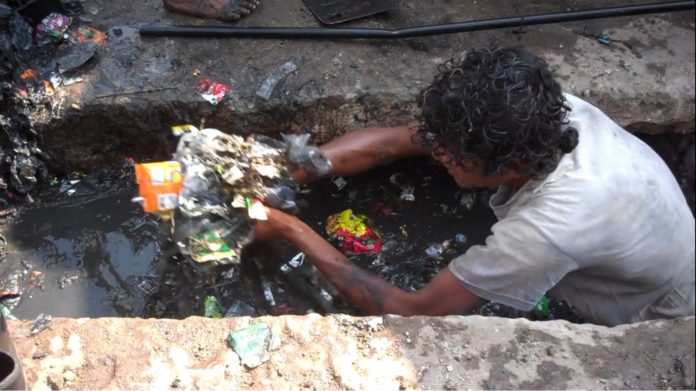The rail ministry said NO to a question in the Lok Sabha on May 4, 2016, when asked whether it is India’s largest employer of manual scavengers–sanitation workers who clear human excreta, a banned practice–disguised as sweepers.
The railways said they used floor scrubbers and vacuum cleaners within trains, and high-pressure water jets in most rail depots where Rajdhani, Shatabdi, Duronto, mail/express and passenger trains originate. Other employers of manual scavengers–almost all Dalits, lowest of Hindu castes–include the army and urban municipalities; like the railways, these organisations also hire them on contract so that they do not appear on their rolls. One Gujarat region has now ordered an inquiry after such contract workers were found cleaning sewers without protective equipment.
The Indian Railways are the largest employer of manual scavengers, with an unknown number on their rolls, IndiaSpend reported in November 2015. Most “sweepers”–as they are called to mask their identity as scavengers–with the railways are employed through contractors, and they earn around Rs 200 per day, we reported.
As many as 12,226 manual scavengers were identified across India–82% of these are in Uttar Pradesh–according to a reply to the Rajya Sabha (Parliament’s upper house) on May 5, 2016, by Minister of State for Social Justice Vijay Sampla. These are clearly under-stated official figures. Gujarat, for instance, admits to having no more than two manual scavengers, according to government data.
Read more here , Feature image courtesy youtube



























